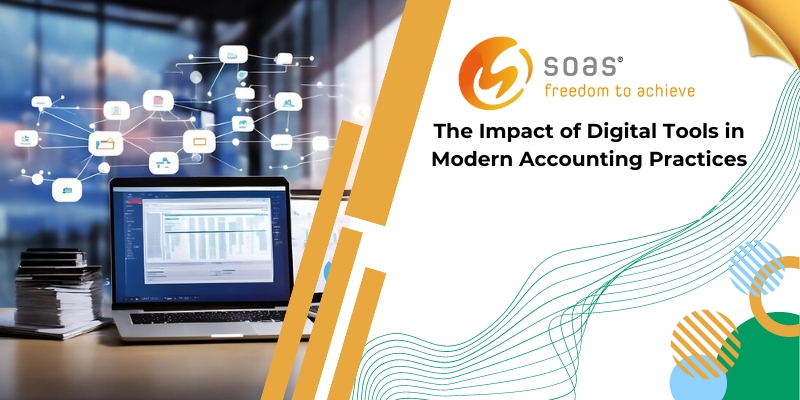The Impact of Digital Tools on Modern Accounting Practices

Evolution of Accounting Practices
Singapore’s journey in accounting practices mirrors its rapid economic development. From humble beginnings of ledger books and manual calculations, the sector has evolved exponentially. Today, digital tools reign supreme, offering efficiency, accuracy, and unparalleled insights.
Digital Tools in Accounting
Cloud-based accounting software has emerged as a cornerstone of modern accounting practices in Singapore. Platforms like Xero and QuickBooks Online provide accountants with the flexibility to access financial data securely from anywhere, facilitating seamless collaboration and decision-making.
Automated data entry tools have streamlined mundane tasks, minimizing errors, and maximizing productivity. With technologies like optical character recognition (OCR), manual data entry is becoming a relic of the past, freeing up valuable time for accountants to focus on higher-value activities.
Data analytics and reporting tools empower Singaporean accountants with actionable insights. By harnessing the power of data, professionals can make informed decisions, optimize financial strategies, and drive business growth in this dynamic market.
Regulatory Environment
Navigating Singapore’s regulatory landscape is crucial for accounting firms. Compliance with the Singapore Financial Reporting Standards (FRS) and the Personal Data Protection Act (PDPA) is paramount. Digital tools play a vital role in ensuring adherence to these regulations, enhancing data security and privacy measures.
Impact of Digital Tools
The impact of digital tools on accounting practices in Singapore is profound. Efficiency and productivity have soared, thanks to automation and real-time insights. Decision-making capabilities have been enhanced, driving business success and competitive advantage in this highly competitive market.
Challenges and Limitations
However, challenges persist. Addressing the skills gap is essential, requiring continuous upskilling and reskilling of accounting professionals. Integration issues and cybersecurity risks also pose significant hurdles, necessitating strategic planning and investment in robust security measures.
Future Trends
Looking ahead, the future of accounting in Singapore is bright. Emerging technologies such as artificial intelligence, machine learning, and blockchain are poised to revolutionize the sector, offering unparalleled efficiency and transparency. Sustainability and ESG reporting will also gain prominence, reflecting the city-state’s commitment to responsible business practices.
Conclusion
As we navigate this exciting landscape of digital transformation, one thing is abundantly clear: the future of accounting in Singapore is digital. By embracing technological innovations and staying ahead of the curve, Singaporean accountants can unlock new opportunities for growth, innovation, and success in this dynamic market.
